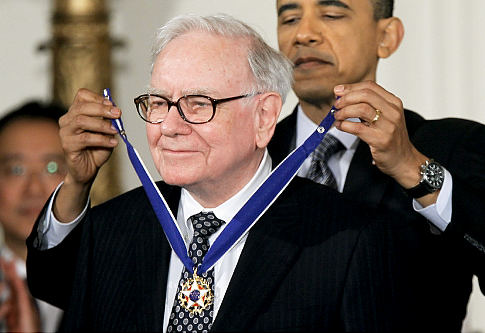What Is Fascism?
by James L. Miller, PhD

Political radicals often shout, “Fascist!”, “Fascist!” at anyone who doesn’t agree with their views. The term is especially popular among college students. But do such people actually know what Fascism is? Have they studied it?
Unfortunately, Fascism has an undeserved bad reputation. Regardless of this reputation, Fascism is a very sensible economic and social ideology. There are a few different “flavors” of Fascism, but basically they all come down to the following.
First and foremost, Fascism is an economic system in which a nation’s government plays a central role in monitoring all banking, trade, production, and labor activity which takes place within the nation. Such monitoring is done for the sole purpose of safeguarding & advancing the nation and its people. Under Fascism, the government will not approve of any business activity unless that business has a positive impact on the nation as a whole and the people of the nation – this is the axiom which determines everything within the economic aspect of Fascism.
In other words, the government asks, “Is XYZ Enterprises good for our nation and our people?” If yes, it’s approved. If no, it’s not approved. When they ask, “Is it good?”, they mean, “Is XYZ Enterprises good for the workers, do they pay a fair wage, do they produce a product or provide a service which advances our nation & our people technologically, morally, spiritually, health-wise, etc???” For example, a pornography company would not be allowed because pornography corrupts people generally and exploits & degrades women particularly. Also, “free” trade agreements (such as what the U.S. has with China) would never be allowed because such trade agreements result in companies sending jobs overseas (where labor is dirt cheap). Such an activity, of course, would undermine a nation’s labor class. This is entirely unacceptable and thus not allowed under a Fascist economic model.
pictured below – German National Socialists burn pornographic and Communist books


Fascism is based on free enterprise – but with constraints (the primary constraint being, “Is the particular economic activity in question good for our nation/people?”). Also, a businessman can become wealthy in a Fascist country, and the government has no objection to this (this is in stark contrast to Communism). Fascism also encourages private ownership of property (again, in stark contrast to Communism where private property is not allowed).
In a nutshell, Fascism basically tells entrepreneurs, “Go ahead and start a business, earn a lot of money, be successful, but don’t produce any products or services which damage our nation and our nation’s people… and make sure you treat your workers fair and pay them a living wage. If you don’t follow these rules, we’ll shut you down.”
With regard to banking, usury is not allowed under Fascism. The government tightly controls all aspects of monetary policy, including terms of lending. The government issues/prints money and lends it interest free, as needed, to grow the economy and ultimately serve the citizens.
pictured below – Germany’s debt-free Fascist Mark was the strongest currency in the world.


The above is the economic aspect of Fascism. There is also a cultural/social aspect to Fascism as well. Under Fascism, government plays a key role in monitoring: film, theatre, art, literature, music, education, etc in order to maintain a high moral standard, keep things clean and respectable, promote a strong sense of patriotism and honor, and prevent the dissemination of depraved filth which corrupts society.

With regard to political legislation introduced by a Fascist government, the same criteria is applied – “Will this proposed law benefit the nation as a whole and the people of our nation?”
pictured below – Fascist Youth: Fit and clean. Fascist Art…REAL Art!


A few other things to mention. Fascism encourages respect for the environment as Fascists understand that nature is the giver of life and thus must be preserved. Contrast this environmental philosophy with that of Capitalism which too often takes the short term view with regard to natural resources and foolishly believes that pollution is a necessary byproduct of profit. Also, and somewhat related to environmental issues, Fascism holds very progressive views with regard to animal rights.
Also, under Fascism, if a person doesn’t like things, he/she can leave the country. Contrast this with Communism where if you don’t like things, you better keep your mouth shut. And, of course, there is no option to leave the country. You will submit or else be sent to a re-education camp where you’ll be brainwashed to accept the Communist system. And if you still resist, you’ll probably be killed. Again, there is no leaving. Submit or suffer the consequences.

Further, Fascism holds women in very high regard. Women are the carriers of new life. They are expected to be educated, worldly, and well read. Women are encouraged to pursue their interests and have a career but only if a career won’t interfere with their family’s needs; family comes first, always. Women are encouraged to be strong yet feminine. Consistent with these ideas, Fascist art often portrays women as heroic and even goddess-like.

In short, Fascism is a form of government & social system which authentically serves the interests of the people and nation as a whole. The word “Fascism” comes from the Italian word “fascio” meaning “the group” or more specifically, “in consideration of the group.” Fascism is rooted in the notion that people must stay true to two mental concepts throughout their lives: 1) the individual’s needs (themselves) and, 2) the group’s needs (their nation)… always evaluating how their individual actions affect the group. Thus Fascism rejects the self-centered “me me me” mentality so common under Capitalism. For example, in a Fascist nation each person is expected to maintain a healthy diet & lifestyle. For if not, they may become seriously ill and thus require expensive health care; this would negatively impact the group (i.e., they’d become a financial burden on the nation).

Continuing this line of thought, under Fascism all people of one’s ethnicity are considered the greater family of that person. Hence, a Fascist nation is thought of as one giant family of several million people. Therefore, just as one mustn’t do anything to hurt their brother or sister in their immediate family, under Fascism one mustn’t do anything which would hurt the nation/group (i.e., the greater family). This is the essence of Fascism – a strong consideration of the group balanced with individualism.

one big happy family
During the German Third Reich, the NSDAP (i.e., “Nazis”) followed all aspects of the above described Fascist system.
ASIDE: Although the economic aspect of Fascism is free-market based, Fascism is NOT Capitalism. Many on the political left wrongly equate Fascism with Capitalism. Again, Fascism is NOT Capitalism. Allow me to briefly explain: the primary goal of Capitalism is profit. On the other hand, the primary goal of Fascism is the well being of a nation’s citizens and well being of the nation as a whole. In a purist-type Capitalist country (i.e., Super-Capitalism) almost nothing can interfere with maximizing profits – not workers, not the environment… almost nothing.


above – The corrupting influence of Wall Street ‘Fat Cats’ and Cronie Capitalists like Warren Buffoon would be neutered under Fascism.
Even when a Capitalist country starts out with tight government regulations, it invariably moves towards Laissez-faire economics (i.e., Super-Capitalism) by way of less and less government regulation. Human greed drives this transformation and ultimately the working class suffer via lower wages or loss of employment altogether if their job is, say, transferred overseas (e.g., to China) where labor is dirt cheap. Capitalists believe that immense wealth at the top will “trickle down” to the masses i.e., that everything will magically work itself out. A certain amount of wealth does “trickle down” but, too often, the worker and environment suffer. As just one example, tens of millions of American manufacturing jobs have been shipped overseas during the past two decades (Capitalist so-called “free” trade policies have allowed for such outsourcing of jobs). Of course then, just as Fascists reject Communism, they also reject Capitalism.

SOURCE –
My friend Alice comments –
Why the Germans youth loved Hitler and screamed for seeing him even from far away?
Hitler made the Germans youth proud of themselves, he was charismatic and know how to motivate his volk. They became proud of their history, their German race, their religion, their culture, their heritage… Their parents had been destroyed morally after WW1, but Hitler was a visionary who saw the beautiful future of Germany, who saved their families from the necessity of prostitution in order to survive, from the shame they felt after loosing WW1, from poverty and miseries. He created a system to educate the youth about the love of nature, sports, patriotism, brotherhood, team work, family… no one has ever made that much to his people as him.
To be happy, money and prosperity is not enough, having a stable family and presence of mother is essential for growing. That’s why Hitler promoted the role of mothers to German women, gave financial incentives for big families. To be happy you should be proud of the History and the accomplishment of your nation. It was the “Volk spirit” concept that was introduced, when one person cannot be separated from his group, he works to progress his nation, the “Youth of Hitler” went to camps where they passed time in group in nature and had team work, or worked to progress some public projects. This made Germans proud to be Germans. A nation that build itself from scratch after being completely destroyed in WW1 HTTPS://WWW.YOUTUBE.COM/WATCH?V=KED3ND2T3XI
see also –
related –
if hitler had won ww2 – james miller ph.d
if only germany would have won ww2 – alice friedmann
1933-1936 THE MIRACLE OF THE GERMAN RECOVERY
ELLEN BROWN ON HITLER’S MONETARY SYSTEM
Source Article from http://smoloko.com/?p=10499
Related posts:
Views: 0
 RSS Feed
RSS Feed

















 February 15th, 2016
February 15th, 2016  Awake Goy
Awake Goy  Posted in
Posted in  Tags:
Tags: 
















